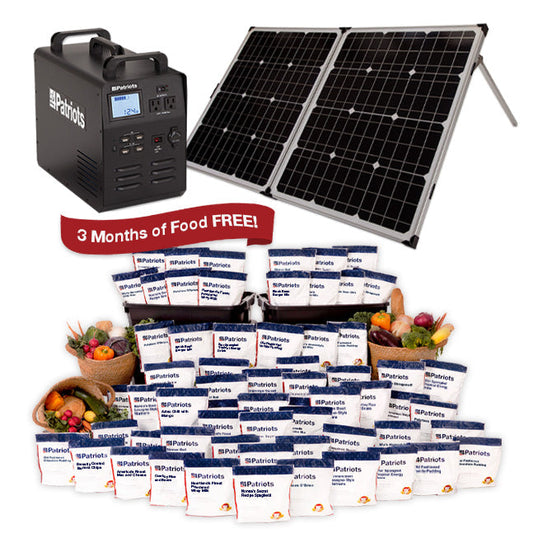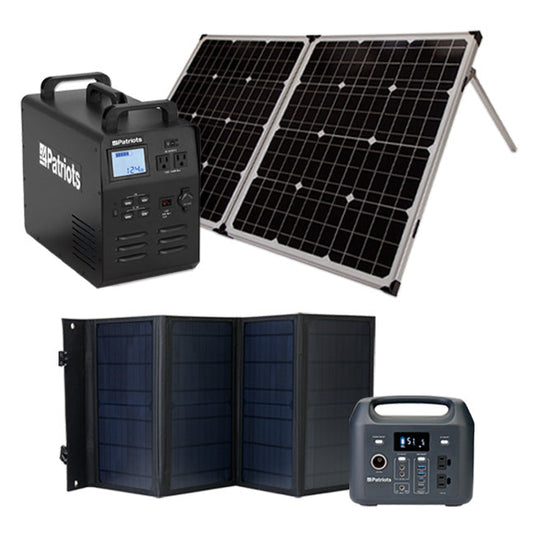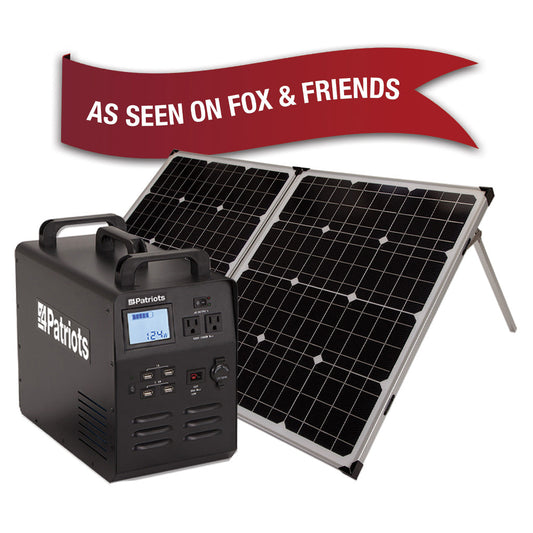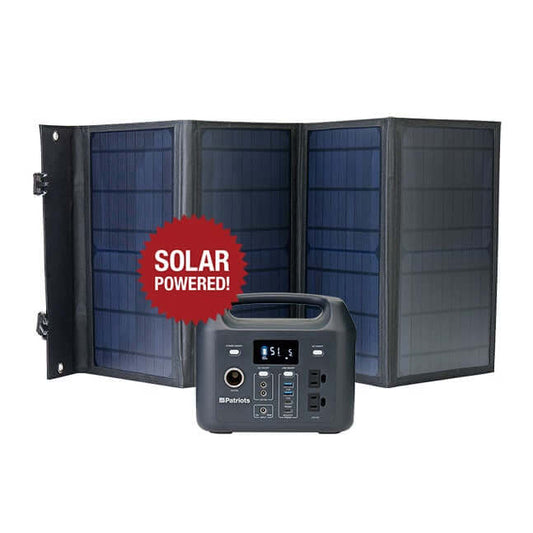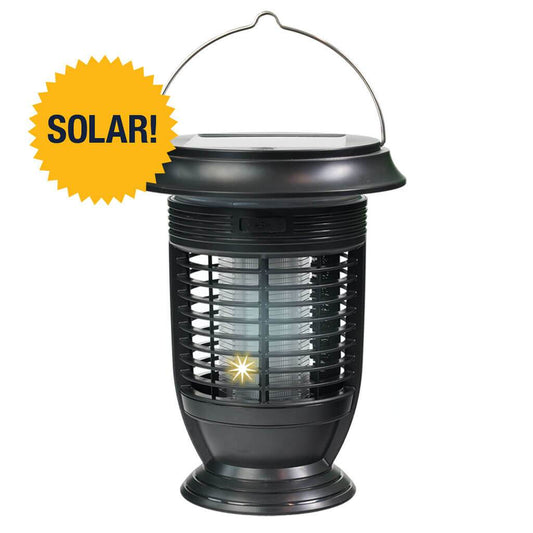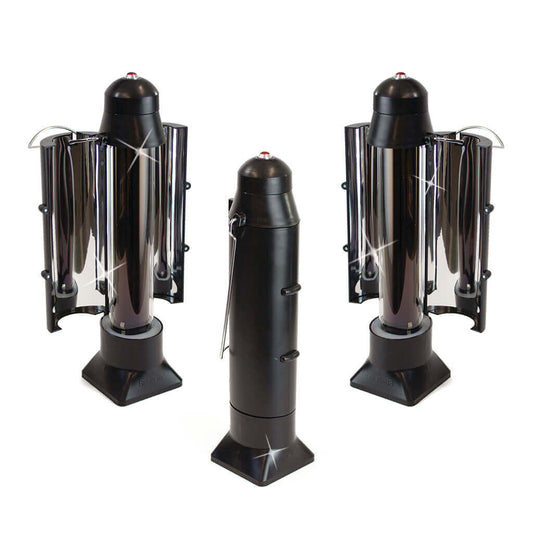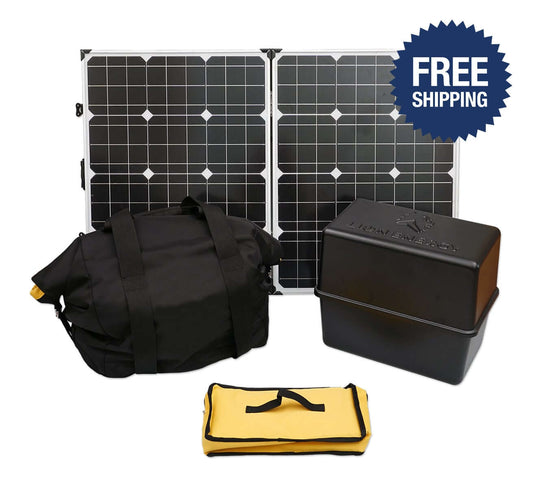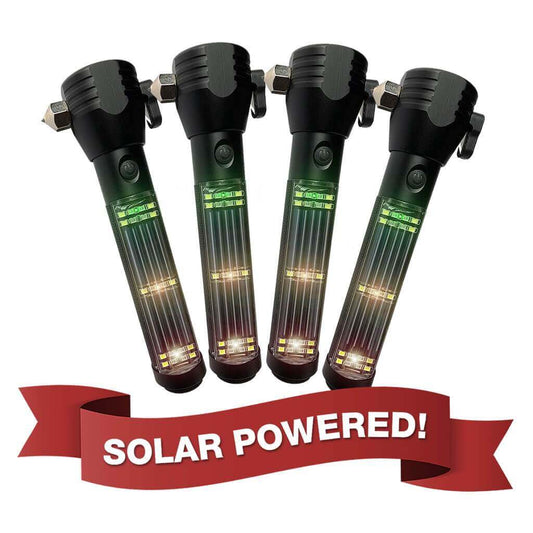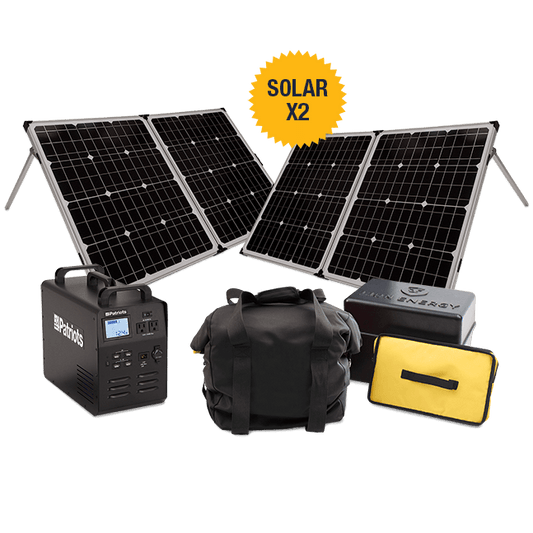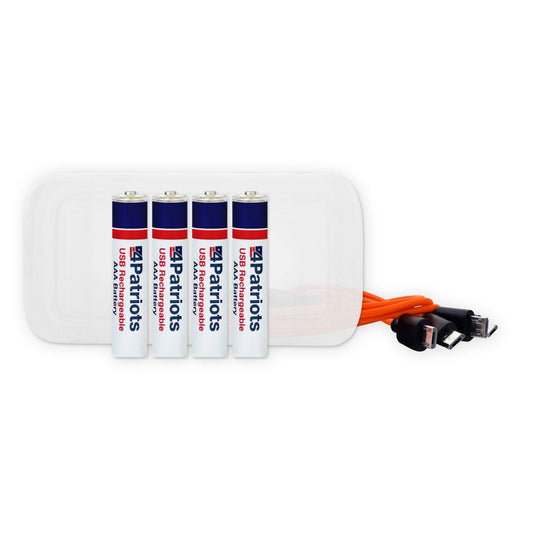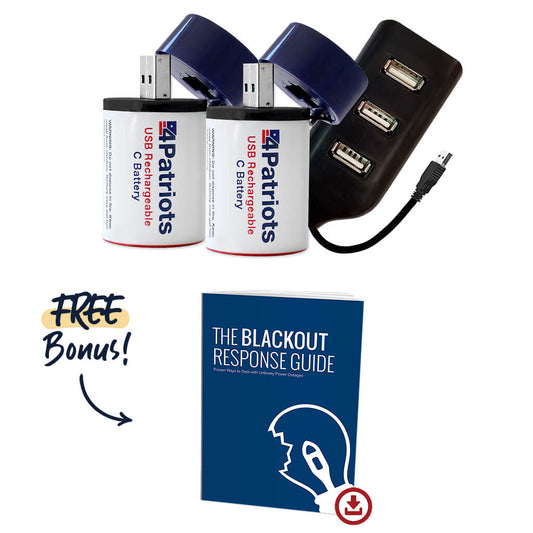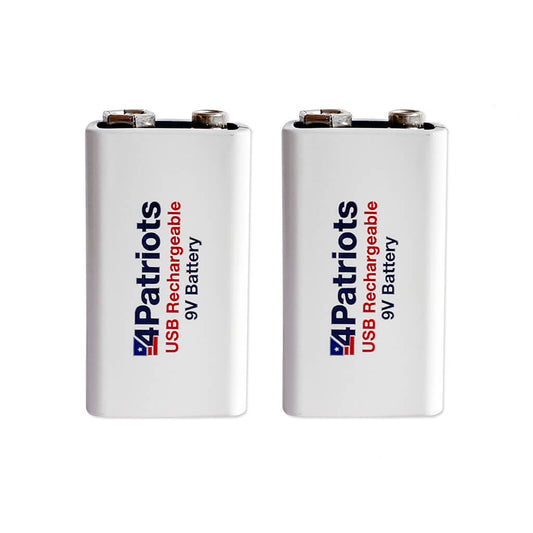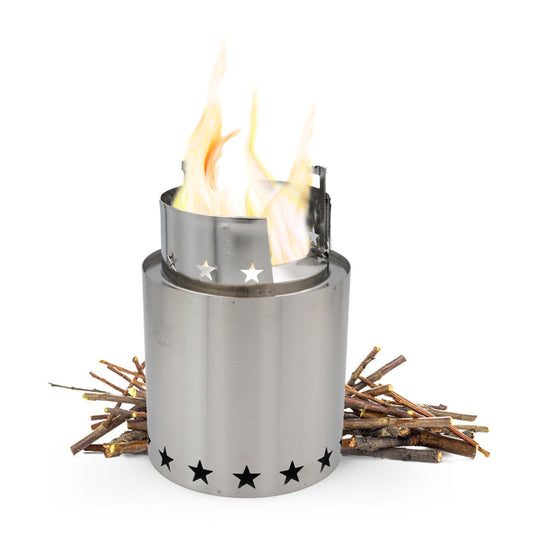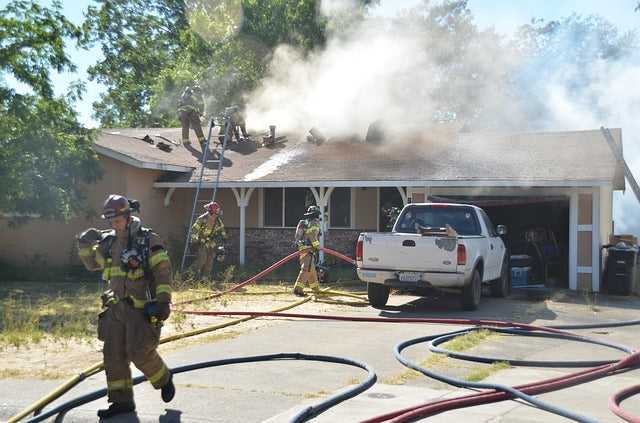
Are Gas-Powered Generators More Dangerous Than Extreme Weather?

Millions of Californians had to deal with planned power outages this past summer and early fall. They didn't need any more problems.
But that's exactly what some of them got. And those problems went far beyond losing electricity for a few hours.
Some of those people lost their homes in fires or were sickened by carbon monoxide poisoning. Or suffered shocks and contact burns.
Why? Because their generators were gas-powered rather than solar-powered.
Fires and Carbon Monoxide Poisonings
Some of those people owned gas-generators prior to the planned outages. Others got them due to those outages.
Either way, they were just trying to keep the lights on. And keep their refrigerated and frozen food from spoiling. Plus, keep their medical devices and their other electronic devices functioning. All they wanted was back-up power.
But some of them made the mistake of running their gas-generator inside their garage. Or too close to their home. Or didn't properly maintain their generator.
As a result, some of those gas-powered generators sparked fires. And others emitted carbon monoxide into homes.
Safety Overlooked: Tragedies Hit Home for Californians
There were many examples of this, but I'll just mention a few. A house burned down in El Dorado County, California in October. Because their gas-generator was too close to a garage.
In September, a gas-generator burned down a garage in Nevada County. Because it was not properly maintained.
A couple in Penn Valley were treated for carbon monoxide poisoning. Because their gas-generator was too close to a window outside their mobile home. A fire department spokesman said they would have died had they fallen asleep before calling 911.
At an Indian Springs horse ranch, an improperly wired generator sent electricity back into the power line. The generator was consumed by fire.
Warnings Often Ignored
Don't get me wrong. Generators are life-savers. They provide peace of mind and comfort knowing that the next time the lights go out, you have a backup power source to support you and your family.
They allow you to keep medical devices functioning and can power up your refrigerator, a space heater, a TV, phones, laptops and more.
But there's a tragic irony here. Research shows that carbon monoxide from gas-powered generators might be deadlier than the disasters that lead people to get them.
And while gas-powered generator manufacturers warn consumers about potential carbon monoxide poisoning, those warnings are not always heeded.
Fatal in 5 Minutes
Regardless of what generator you own, big or small, solar or gas, knowing generator safety is key. But this is especially true with gas-generators.
Depending on the levels, carbon monoxide poisoning can be fatal. In just five minutes.
Most people won't notice it until they start feeling ill. That's because it's an odorless, colorless gas. Falling asleep while carbon monoxide is present can be deadly.
Following Hurricane Irma, 11 deaths in Florida, Georgia and North Carolina were attributed to the storm. But 16 were said to be caused by carbon monoxide poisoning.
One incident involved 66-year-old Elaine Kotake. She passed away from carbon monoxide poisoning after four days of running her gas generator too close to her house. Her brother-in-law, 74-year-old Johnnie Kotake died two days later.
Take These Precautions
Of all the possible generator tips, reading the manual seems so simple and obvious, and yet many people ignore this step.
By educating yourself and knowing the safety precautions, you will better protect yourself and your family from potential life-threatening scenarios. Here are some safety tips to follow if you own a gas-generator:
- Keep your generator at least 25 feet from any building.
- Make sure fumes are not blowing toward anything flammable, such as vegetation.
- Store your gas cans properly and far away from the generator.
- Keep your generator away from vents or windows.
- Install a carbon monoxide alarm.
- Don't run your generator while it's raining. Unless it's shielded by a waterproof and well-ventilated tent.
A Safer Way to Provide Backup Power
Power outages are happening more frequently than ever. From California's planned summer blackouts to the outages happening even just last week from Winter Storm Ezekiel.
And if you don't take the proper safety precautions, your backup power source could be just as deadly as the power outage itself.
Fortunately, there is a much better... safer, and reliable way to give yourself back-up power than using a gas-powered generator.
I'm talking about a portable, solar-powered generator.
Solar generators are a smart choice. They produce an endless supply of life-saving electricity when you need it most. And without gas, fumes or noise. Plus, it's safe enough to use indoors. Even in your bedroom.
You can get the details, right here.
Featured Products
- Regular price
- From $799
- Regular price
-
- Sale price
- From $799
- Unit price
- per
- Regular price
- $249
- Regular price
-
- Sale price
- $249
- Unit price
- per
- Regular price
- $2,497
- Regular price
-
$3,194 - Sale price
- $2,497
- Unit price
- per
- Regular price
- $2,499
- Regular price
-
$2,994 - Sale price
- $2,499
- Unit price
- per
- Regular price
- From $29.95
- Regular price
-
$119.80 - Sale price
- From $29.95
- Unit price
- per
- Regular price
- $2,499
- Regular price
-
- Sale price
- $2,499
- Unit price
- per
- Regular price
- $499
- Regular price
-
- Sale price
- $499
- Unit price
- per
- Regular price
- $29
- Regular price
-
- Sale price
- $29
- Unit price
- per
- Regular price
- $2,796
- Regular price
-
- Sale price
- $2,796
- Unit price
- per
- Regular price
- $29.95
- Regular price
-
- Sale price
- $29.95
- Unit price
- per
- Regular price
- $97
- Regular price
-
- Sale price
- $97
- Unit price
- per
- Regular price
- $4,999
- Regular price
-
- Sale price
- $4,999
- Unit price
- per
- Regular price
- $49.95
- Regular price
-
- Sale price
- $49.95
- Unit price
- per
- Regular price
- From $69
- Regular price
-
- Sale price
- From $69
- Unit price
- per
- Regular price
- $201
- Regular price
-
- Sale price
- $201
- Unit price
- per
- Regular price
- From $90.97
- Regular price
-
$129.95 - Sale price
- From $90.97
- Unit price
- per
- Regular price
- $999
- Regular price
-
- Sale price
- $999
- Unit price
- per
- Regular price
- $29.95
- Regular price
-
- Sale price
- $29.95
- Unit price
- per
- Regular price
- From $29.50
- Regular price
-
$30.99 - Sale price
- From $29.50
- Unit price
- per
- Regular price
- $129
- Regular price
-
- Sale price
- $129
- Unit price
- per
- Regular price
- From $27
- Regular price
-
$399.80 - Sale price
- From $27
- Unit price
- per
- Regular price
- $3,494
- Regular price
-
- Sale price
- $3,494
- Unit price
- per
- Regular price
- From $199
- Regular price
-
$205.50 - Sale price
- From $199
- Unit price
- per
- Regular price
- $99.95
- Regular price
-
- Sale price
- $99.95
- Unit price
- per
- Regular price
- $29.95
- Regular price
-
- Sale price
- $29.95
- Unit price
- per
- Regular price
- $8.99
- Regular price
-
$29.95 - Sale price
- $8.99
- Unit price
- per
- Regular price
- $99.95
- Regular price
-
- Sale price
- $99.95
- Unit price
- per
- Regular price
- $29.95
- Regular price
-
- Sale price
- $29.95
- Unit price
- per
- Regular price
- $59.95
- Regular price
-
- Sale price
- $59.95
- Unit price
- per
- Regular price
- $11.98
- Regular price
-
$29.95 - Sale price
- $11.98
- Unit price
- per
- Regular price
- $44.95
- Regular price
-
$44.95 - Sale price
- $44.95
- Unit price
- per
- Regular price
- $24.95
- Regular price
-
$49.95 - Sale price
- $24.95
- Unit price
- per
- Regular price
- $114.95
- Regular price
-
- Sale price
- $114.95
- Unit price
- per
- Regular price
- $189
- Regular price
-
- Sale price
- $189
- Unit price
- per
- Regular price
- $499
- Regular price
-
- Sale price
- $499
- Unit price
- per
- Regular price
- $59.95
- Regular price
-
- Sale price
- $59.95
- Unit price
- per
- Regular price
- $39.95
- Regular price
-
- Sale price
- $39.95
- Unit price
- per
- Regular price
- $59.95
- Regular price
-
- Sale price
- $59.95
- Unit price
- per
- Regular price
- $19.95
- Regular price
-
- Sale price
- $19.95
- Unit price
- per
- Regular price
- $99.95
- Regular price
-
- Sale price
- $99.95
- Unit price
- per
- Regular price
- $69
- Regular price
-
- Sale price
- $69
- Unit price
- per
- Regular price
- $14.27
- Regular price
-
$21.95 - Sale price
- $14.27
- Unit price
- per
- Regular price
- $149.95
- Regular price
-
- Sale price
- $149.95
- Unit price
- per
- Regular price
- $79.95
- Regular price
-
- Sale price
- $79.95
- Unit price
- per
- Regular price
- $39.95
- Regular price
-
- Sale price
- $39.95
- Unit price
- per
- Regular price
- $114.95
- Regular price
-
- Sale price
- $114.95
- Unit price
- per
- Regular price
- $39.95
- Regular price
-
- Sale price
- $39.95
- Unit price
- per
- Regular price
- $99.95
- Regular price
-
- Sale price
- $99.95
- Unit price
- per
- Regular price
- $24.95
- Regular price
-
- Sale price
- $24.95
- Unit price
- per
- Regular price
- $24.95
- Regular price
-
- Sale price
- $24.95
- Unit price
- per





